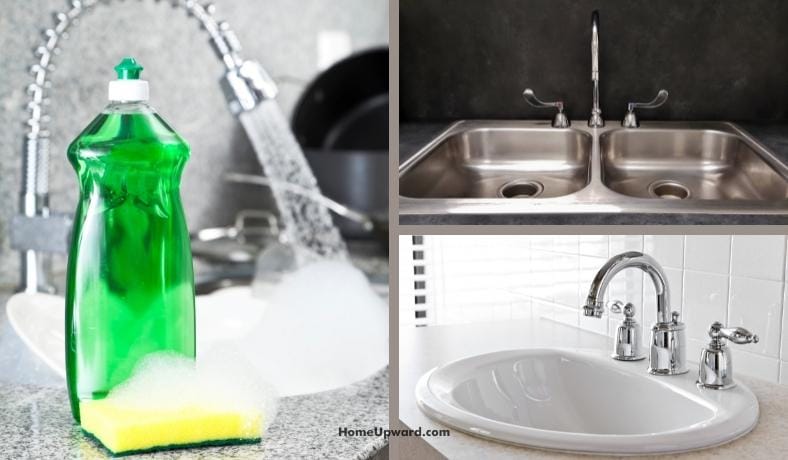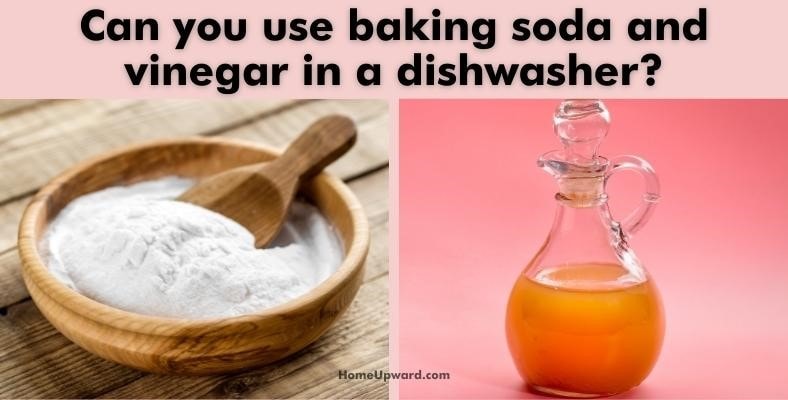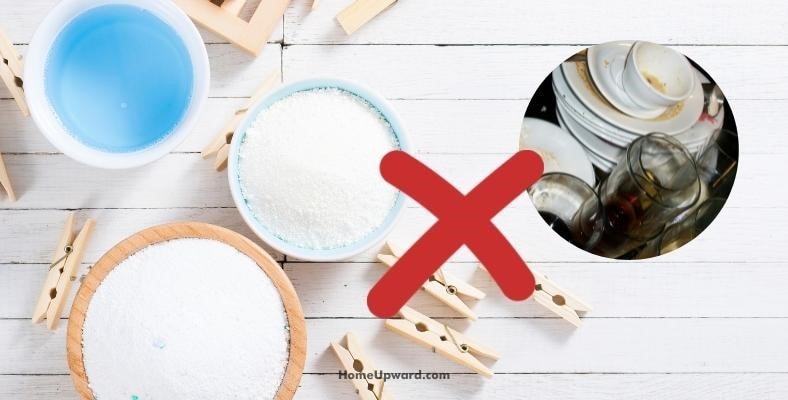Contents
Why you shouldn’t use dishwasher detergent for hand washing dishes
When it comes to hand washing dishes you may not give a second thought about the type of detergent you use. The truth is your detergent matters.
If you have to clean dishes in the sink as a last resort, be cautious about using dishwashing liquid. Here are reasons why it is not a good idea:
- Dishwashing detergent is too strong to use in the sink. Consider diluting it with water before washing dishes by hand. Otherwise you’ll leave behind too many suds.
- Dishwasher liquid is damaging to the skin and can irritate it. Its alkalinity can neutralize the natural oils on your skin and make them extremely dry.
- Detergents can release a scent that can be harmful if you breathe it in. Doing so may trigger allergies and respiratory symptoms, such as asthma.
- The chemicals in the dishwasher tablet can be unsafe for the environment.
Why using dishwasher detergent in the sink isn’t a great idea
Dishwasher detergent produces very little suds. When you use dishwashing liquid to clean dishes, you have to add extra detergent to try to form bubbles. The problem with that is the risk of too much detergent.
Because of the excessive suds, you may have to work harder and use more water to thoroughly rinse them.
Good alternatives to dishwasher detergent you can use
The best alternative to using dishwasher detergent is liquid dish soap.
It has the purpose of washing dishes in the sink with the right amount of soap suds. To use it in a dishwasher, you should consider accompanying it with baking soda to mimic a dishwashing tablet.
All you do is place three drops of the liquid dish soap into the dispenser, followed by baking soda. It works like a dishwasher detergent tablet or dishwasher pod. You can use baking soda by itself.
Other possible cleaning agents to use in place of dishwasher detergent are vinegar and Borax.
All it takes is half a bowl of vinegar on the upper rack to disperse all over the dishes when water hits it. Another alternative is to fill the entire detergent reservoir with Borax and run the dishwasher.
Dish soap vs dishwasher detergent differences
Liquid dish soap and dishwashing liquid share a common ingredient known as surfactant. Its purpose is to dissolve oils from food particles left in the water. There are differences between the two kinds of detergents:
- Dishwasher detergent uses more water to dilute it. Hand washing soap does not require as much soapy water to produce suds.
- Dishwasher water temperature must be hot to sterilize the dishes. Water too hot for handwashing can burn the skin.
- Hand washing soap produces more bubbles than dishwashing detergent.
- Dishwasher detergent contains bleach and has a high pH level for effective cleaning. Dish soap is bleach-free and neutral.
Using dish soap for hand washing
The concept of less is more pertains to handwashing with dish soap. It only takes a little bit of dish liquid and a generous amount of water to form a lot of suds. The ingredients are gentle on the skin yet tough enough to clean the dishes.
Using baking soda and vinegar for hand washing
Baking soda and vinegar separately make a great substitution for dish soap. If you are almost out of liquid dish soap, you can use baking soda or vinegar. To use the baking soda, you only need a small amount of the remaining hand washing liquid.
Add it along with one to three tablespoons of baking soda to the dishwater to clean dishes.
Baking soda works powerfully against caked-on food and tough stains, including plastic. To accomplish this, you need to make a pasty solution from the soda and water, with a ratio of 3:1, and a small amount of dish detergent.
Deeply-stained plastic dishes should soak overnight.
Vinegar is a great agent for removing tough stains. Combine it with salt on top of the stains and let the dishes soak for 15 minutes. The acidity of the vinegar breaks up hard deposits on cookware.
Can you use baking soda and vinegar in a dishwasher?
You can use both baking soda and vinegar in a dishwasher. They need to work separately; otherwise, you may have a mess on your hands. The combination creates a big foam.
Baking soda has a cleansing effect, and vinegar helps loosen up and remove stubborn deposits.
Can you use laundry detergent to wash dishes?
It only takes mild soap and hot water to clean dirty dishes in the sink. Laundry detergent contains chemicals that consist of aromas, stain lifters, and other toxins that can make you sick if they remain on your cookware.
For that reason laundry detergent isn’t really a good replacement for dish soap.





